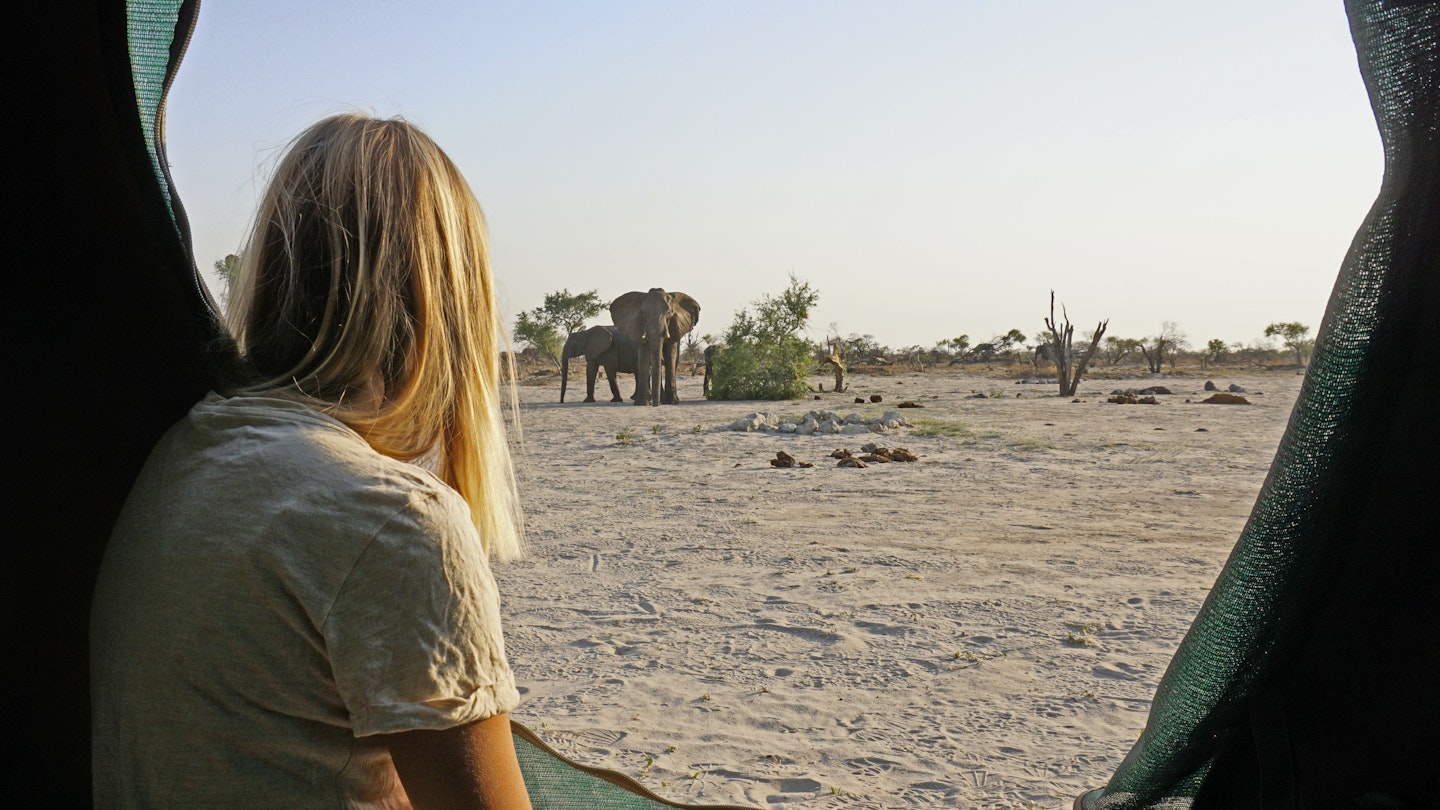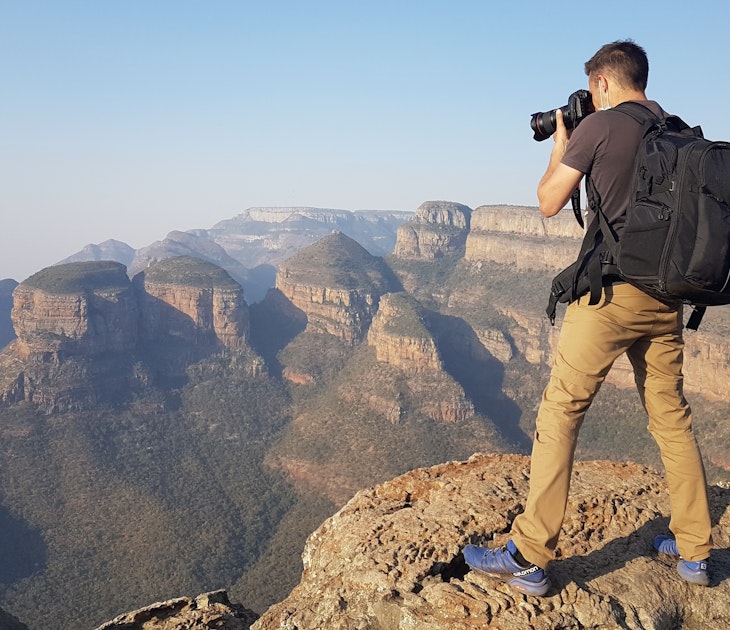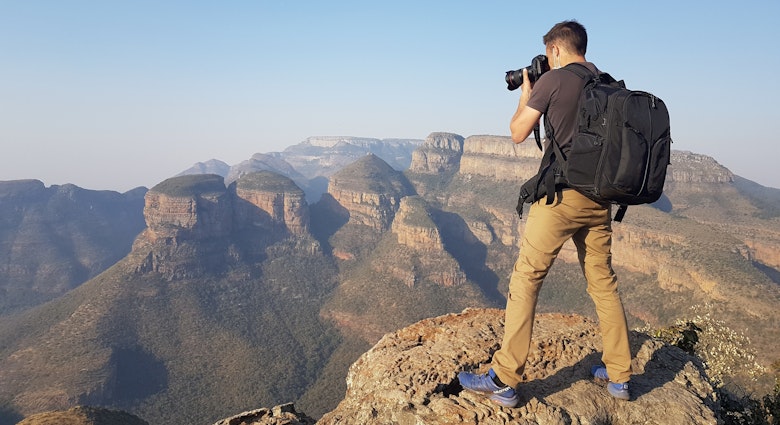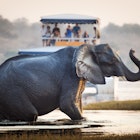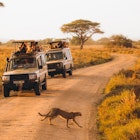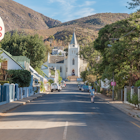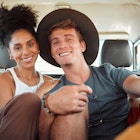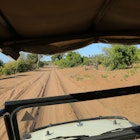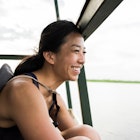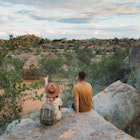Having driven alone around Botswana and across most of southern Africa, I've learned a few things from traveling as a female. The most important lesson? Just go.
From Botswana’s arid south to the Okavango Delta and bountiful Chobe region beyond, this peaceful country is a joy to explore. Here are the top things to know before you visit Botswana.
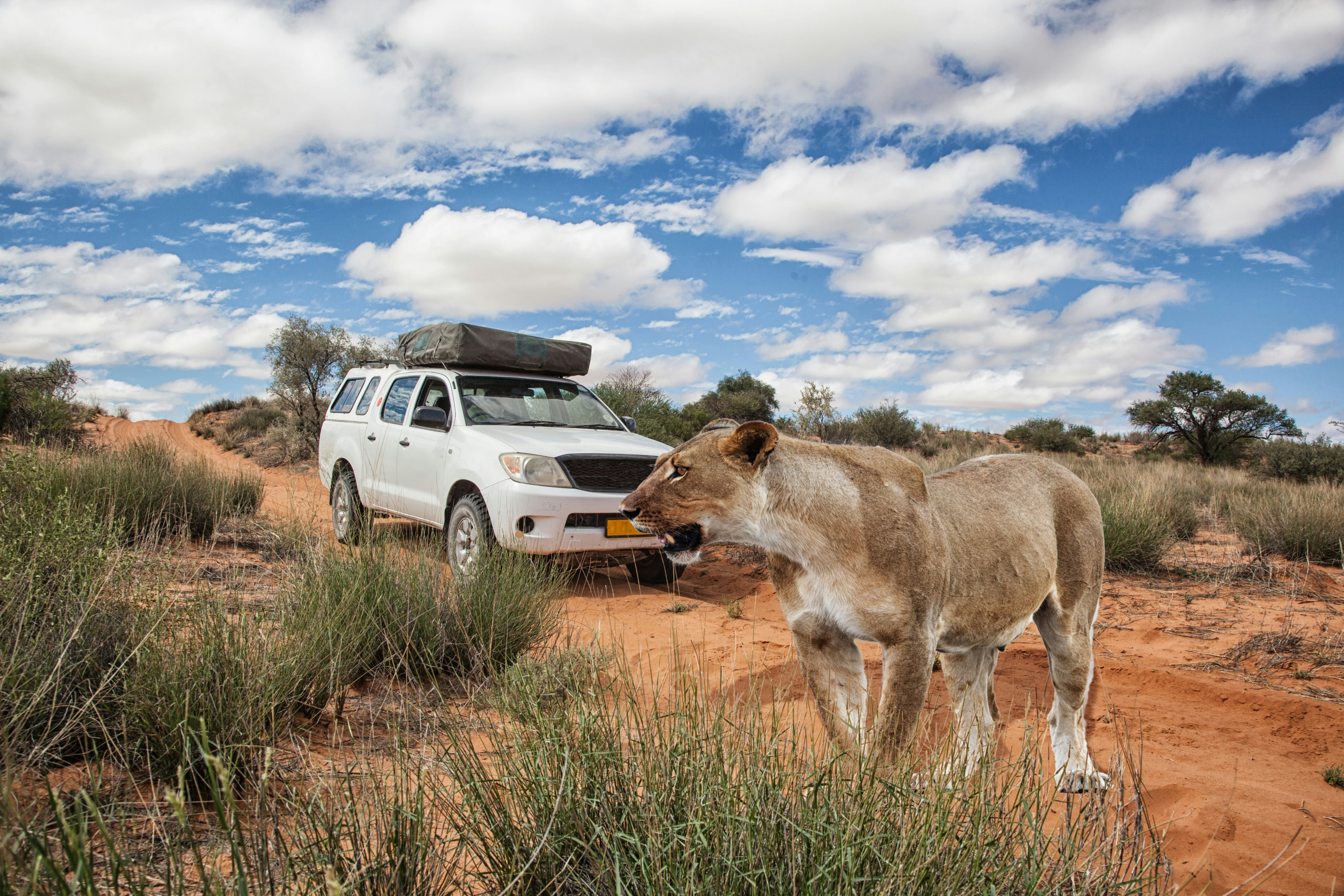
1. Getting around is a challenge, and you'll probably need a 4WD vehicle
Botswana's best adventures are wild and far from civilization – but public transport will only get you so far. It’s possible to plan a sedan-friendly road trip on paved roads, but Botswana is known for the allure of its remote wilderness rather than its big cities.
If you’re traveling independently and national parks are on your bucket list, you need a 4WD vehicle and must understand seasonal road conditions.
A fully equipped 4WD is typically rigged with rooftop tents. This means you can sleep higher up away from dangerous animals, and it comes with all the necessary camping gear for a self-sufficient adventure. These rugged vehicles can be picked up in Maun, Kasane, or Johannesburg (South Africa) and rented from companies such as Bushtrackers Africa. They generally cost US$150 per day.
Ask the rental company about the best times to visit specific areas (the answer will often be in the dry season) and explain their emergency protocols and recovery support. For example, do they have an office and spare parts in Maun?
Driving through Botswana's national parks and game reserves is not to be underestimated. As a rule, it's safest to travel with a satellite phone in case of a breakdown or with at least one other vehicle.
2. Plan for roads to be in bad condition
The back roads in Botswana generally aren’t in good condition – and neither are some of the main highways. If you see a track or dirt road to the left of the main route, the road ahead is likely horribly potholed. As a rule, it’s almost always best to take the unofficial detour.
Whether paved or not, don't be fooled by short distances. Plan extra time into your itinerary to account for these slow-going conditions – potholes, rutted roads and deep sand – and breathing room to stop and snap more photographs. Refer to Tracks4Africa and download the Maps.Me app. This is the most accurate way to judge time over a given distance for Botswana's best off-road routes. Having paper maps, especially ones that include dirt roads and tracks, is useful as well.

3. Book campsites and lodges in advance during Botswana’s peak season
Luxury stays in faraway fairytale locations and self-drive expeditions between remote campsites both require a decent amount of advance booking – especially when traveling in peak season between June and September.
July and August are the busiest months in Botswana when campsites fill up with intrepid travelers from overseas and safari-loving South Africans enjoying a winter bush break. Campgrounds inside the national parks are limited and run by different private operators. Call directly to book and start planning well in advance. Typically, response times over email are prolonged.
4. Carry physical proof of your booking
There is very little cellular signal and connectivity in these wonderful wilds, meaning you won’t be able to search your inbox easily. Print out proof of booking before your journey and draw cash in the local currency (pula) to pay the park fees. Expect to be turned away at the park's gate if there is no space (and it's invariably a long trip back to the nearest town).
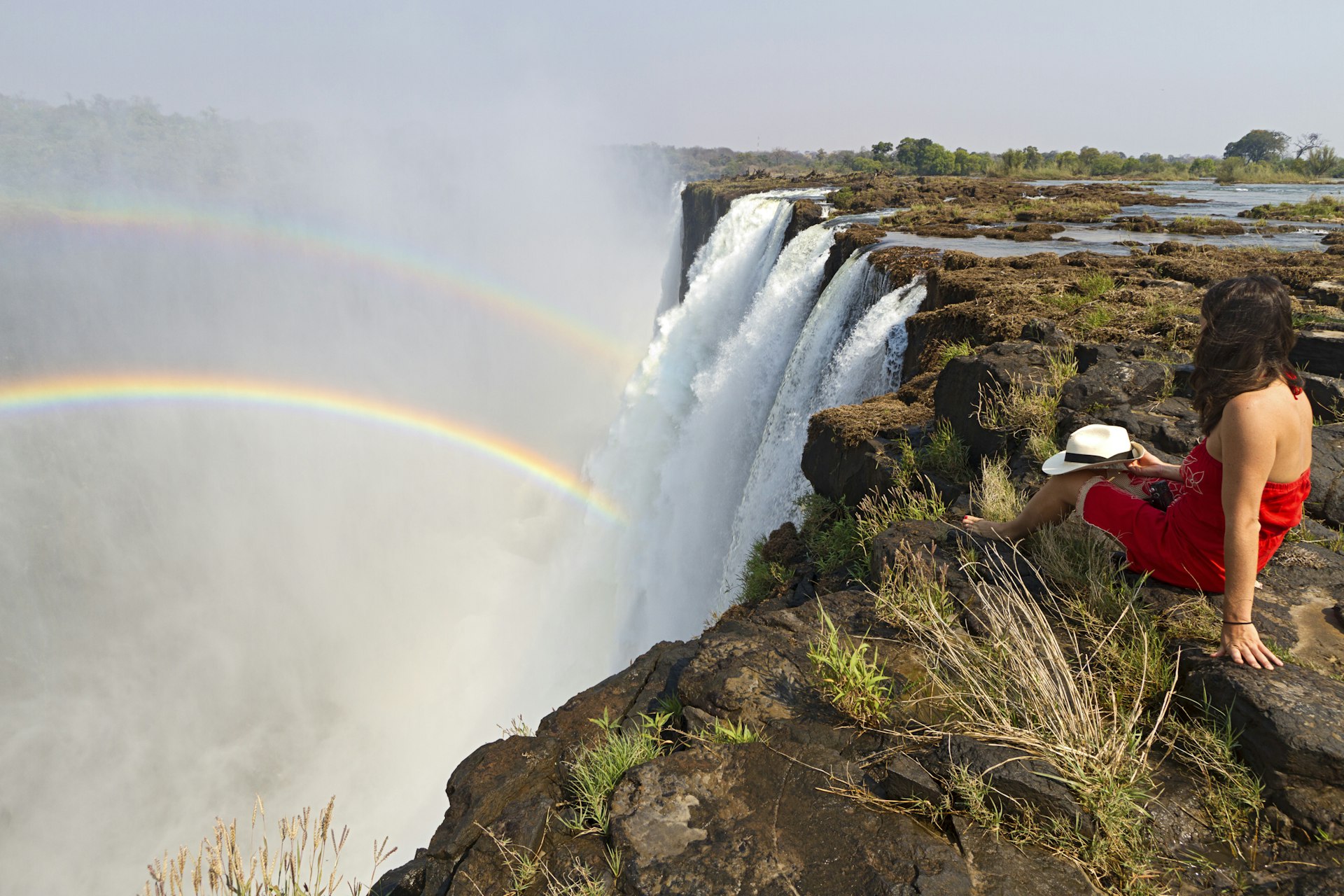
5. How long should I spend in Botswana?
Most safaris start either in Maun or Kasane and circuit from there. With a week or less, maximize your time by flying into a lodge or camp. It's easy to reach most far-flung lodges and camps by charter flight on the six-, nine- and 12-seater Cessna planes. You’ll touch down in the middle of nowhere (between 20 to 50 minutes’ flight time from Maun), where wildlife wanders across the runway. Spending three nights in one place will best compensate for the travel time (and airport waits) between locations.
If you have 10 days or more, discover Botswana on a road trip, although the journey will feel rushed if you try to cram in all the wildlife hotspots, especially with the added toils of camping every day. Two weeks is a more reasonable duration to soak up the gorgeous diversity of the Delta and the desert and to make an overnight sightseeing stop at Victoria Falls.
6. Travel solo outside of peak safari season, but don’t drive alone
Solo supplements are often waived outside peak season, and this is the easiest time to nab a last-minute booking. The cheapest time to visit Botswana is between November and February, and you can still spot wildlife then. The landscape is lush, green, dramatic with epic cloud formations, and brimming with colorful birds, blooms, and butterflies. However, this “green season” can also be the trickiest period to self-drive because the national parks and campsites have more mud and water, making some tracks impassable.
Instead, it’s a superb time to fly into a high-end lodge. Many companies waive the single supplement for solo travelers in the low season, too – and you’ll find plenty of company. Dinner is frequently enjoyed around a communal table to compare sightings with other guests and learn more about life in Botswana from local camp managers or your guide. Another plus? More daylight hours to enjoy it all.

7. Just remember, you can't hop into a mokoro at any time of the year
Water levels are generally at their highest in the Okavango Delta during July and August (which is also the priciest time of year to go on safari). Ask about the seasonality of gliding in a mokoro (traditional canoe) and time your trip to guarantee an outing on the water. For a fun weekend and more traditional insight into the importance of the mokoro, tie your trip with a visit to the annual Nkashi Classic festival.
8. Greet people in Setswana
The Batswana emphasize extensive greetings. Before asking for help, salutations go a long way and it’s respectful to greet everyone present, starting with the elders. If you are addressing a woman, say “Dumela, mma” and to a man, “Dumela, rra”. For a group of people, a simple “Dumelang” will do. Asking how a person is doing and whether they slept well will score even more points.
9. Dress respectfully in rural areas
While most tourist haunts adhere to Western dressing norms, this isn't the case everywhere, particularly in rural areas. Women in Botswana typically dress modestly and wear skirts that cover the knees. It's best to follow this custom when visiting an office, police station, or government building and when meeting distinguished members of society, such as the chief.

10. You don't have to wear khaki on safari
Any neutral-toned clothing will do as long as it's comfortable and lightweight and your shirt isn't too brightly colored. The only time beige and blending in is genuinely preferred is during a walking safari.
11. Pack a warm coat, but also a bathing suit
It's essential to layer up because Botswana experiences chilly mornings and evenings. Game drives and morning activities can be cold. In winter, temperatures can drop below freezing in desert areas, but then the mercury climbs with the sun and you can frequently take a dip in the pool come afternoon.
12. A pair of binoculars will revolutionize your safari
Unless you’re on safari in a private reserve where guides can off-road into the bush, you'll probably witness wildlife from a distance. Bring a good pair of general-purpose binoculars (specifications 8x40 or 10x42) and a decent zoom camera lens.
13. How to leave a tip in Botswana
It's customary to tip lodge staff and safari guides, providing the service was good. Travel agents advise giving roughly US$15 per guest, per day directly to the guide and $10 to the rest of the staff, which usually goes into a collective kitty. The US dollar is widely accepted at lodges and hotels throughout the country.
14. Is Botswana a conservative country?
Women traveling alone can expect to be asked if they have a husband or boyfriend. It's still not common to see independent travelers, and a band on your wedding finger can deter unwanted advances. It's even less common to see same-sex relationships. Homosexuality was decriminalized in 2019 but it is still stigmatized, and public displays of affection could attract negative attention.

15. Whatever you do, avoid driving at night
Obstinate donkeys, roaming elephants, goats, wayward cattle and ostriches are just some of the wildlife that walk the roads of Botswana. Drive with extreme caution and avoid driving at night.
16. Your shoes might carry disease
Beef is a valuable export and cows are a treasured signifier of cultural wealth in Botswana. To prevent the spread of disease, specifically foot-and-mouth, fences have been erected to separate domestic beasts from wild animals (admittedly, not always effectively). Farmers, families, and industry face financial catastrophe if cattle succumb to this infectious disease.
It’s illegal to transport raw animal products or select fruits and vegetables from wilderness areas (mainly in the north) to rural areas (mostly in the south). Always stop at the official fence boundaries and road gates, even if they appear abandoned. Sometimes, an official sitting in the shade nearby will wave you through, but every vehicle is subject to inspection.
Ready the cooler boxes and make fridges accessible for checks. You'll also need to disinfect your shoes and stamp them in a sanitizing station to stop the potential spread. Keep all shoes aside or in crates to prevent the disinfectant from covering other gear.
17. You can drink the tap water in Botswana, but...
Tap water in towns is usually fine but probably not what you're used to, which can cause stomach upsets. At tourist lodges, the tap water is filtered. Many campsites do not have water at all, but grocery stores stock big bottles for overlanders.
18. Pack insect repellent and use it for a peaceful sleep
Malaria is present in Botswana and widespread in the north. Consult your doctor about the latest anti-malaria precautions before you travel. Use insect repellent liberally. Most lodgings supply an insect repellent called Peaceful Sleep, which locals use to keep unwanted buzzing and biting at bay.
19. Watch out for petty theft
Although crime is rare in Botswana, petty theft and sometimes pickpocketing can occur in the cities. As you would in most cities, be vigilant with your valuables and avoid walking alone at night or in poorly lit areas.
There has also been a spate of midnight thefts at campsites near safari pit stops. Thieves typically smash the windows of a car to snatch valuables. Do not leave your passport, camera, wallet, or phone visible or within reach.

